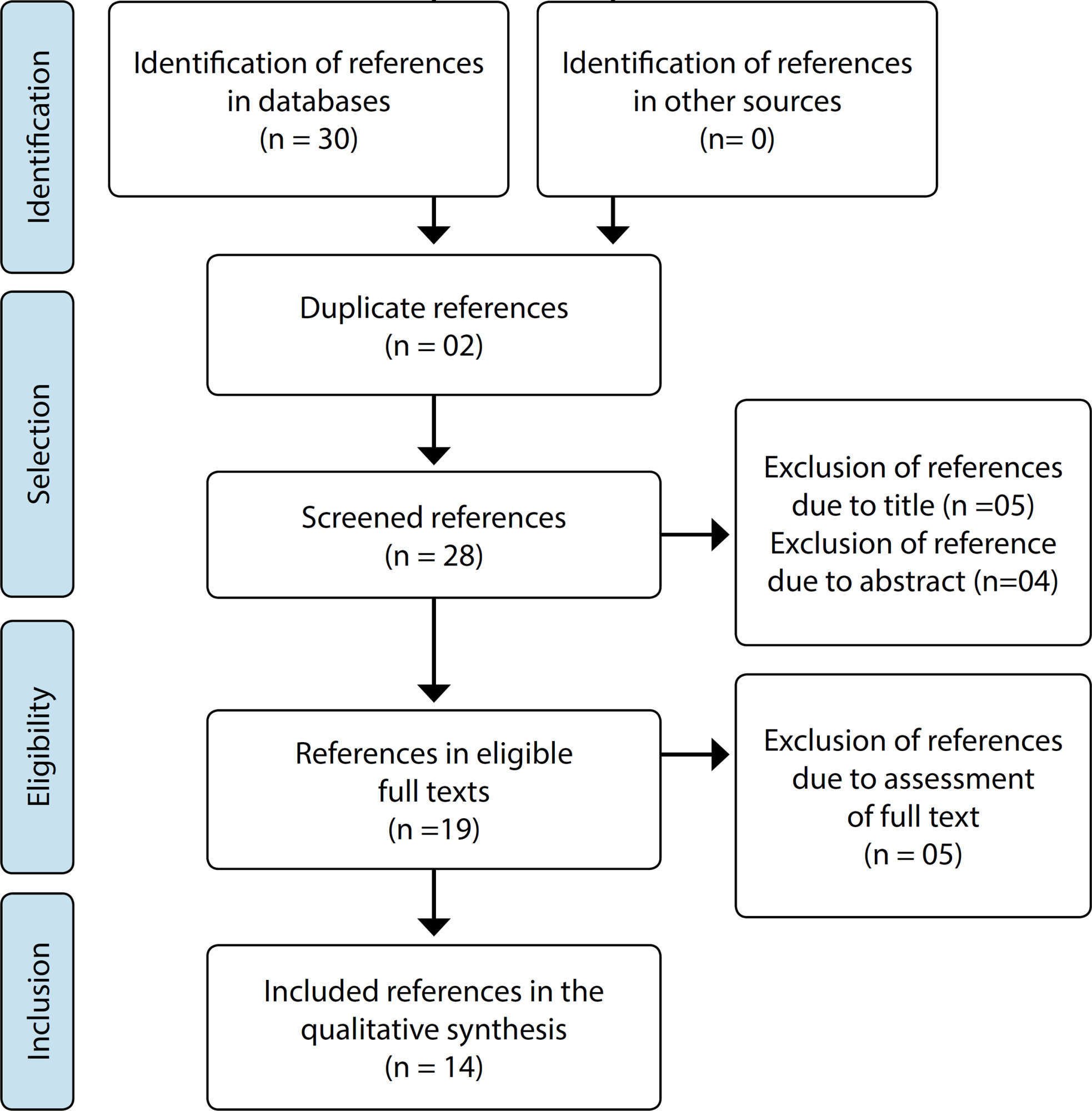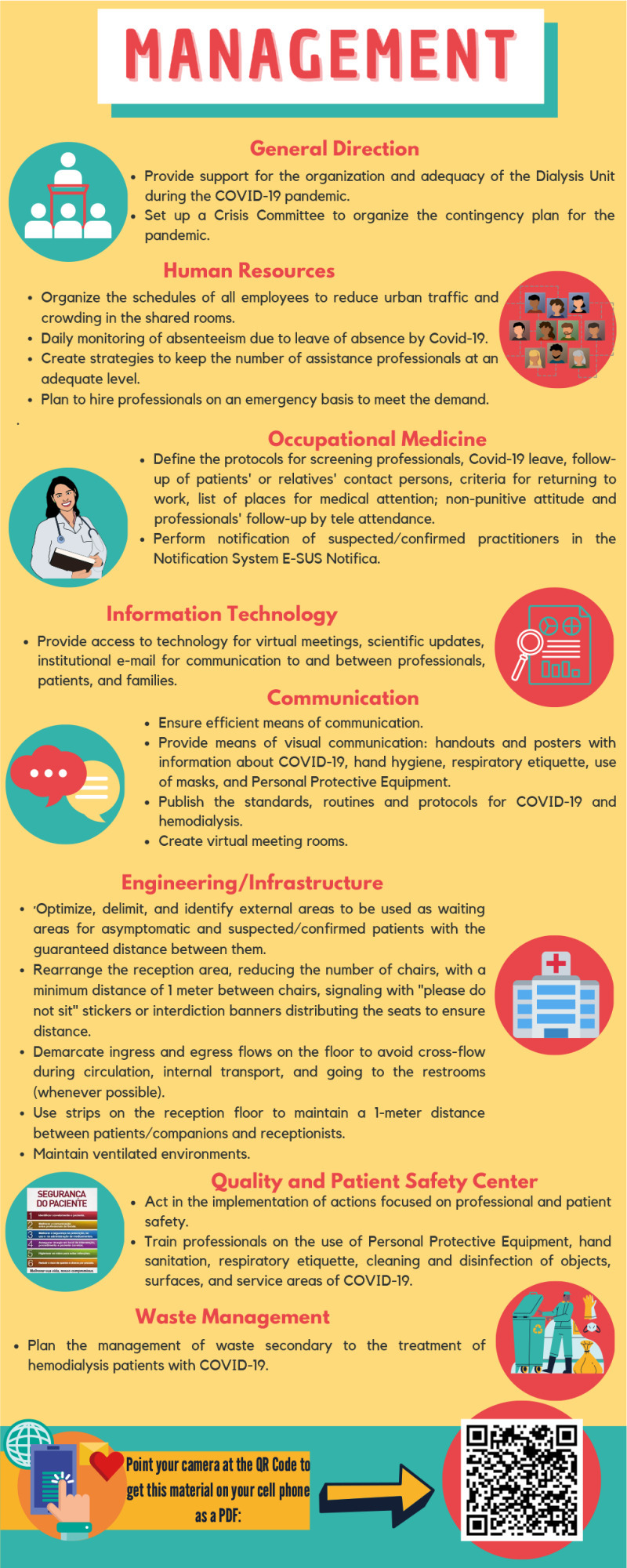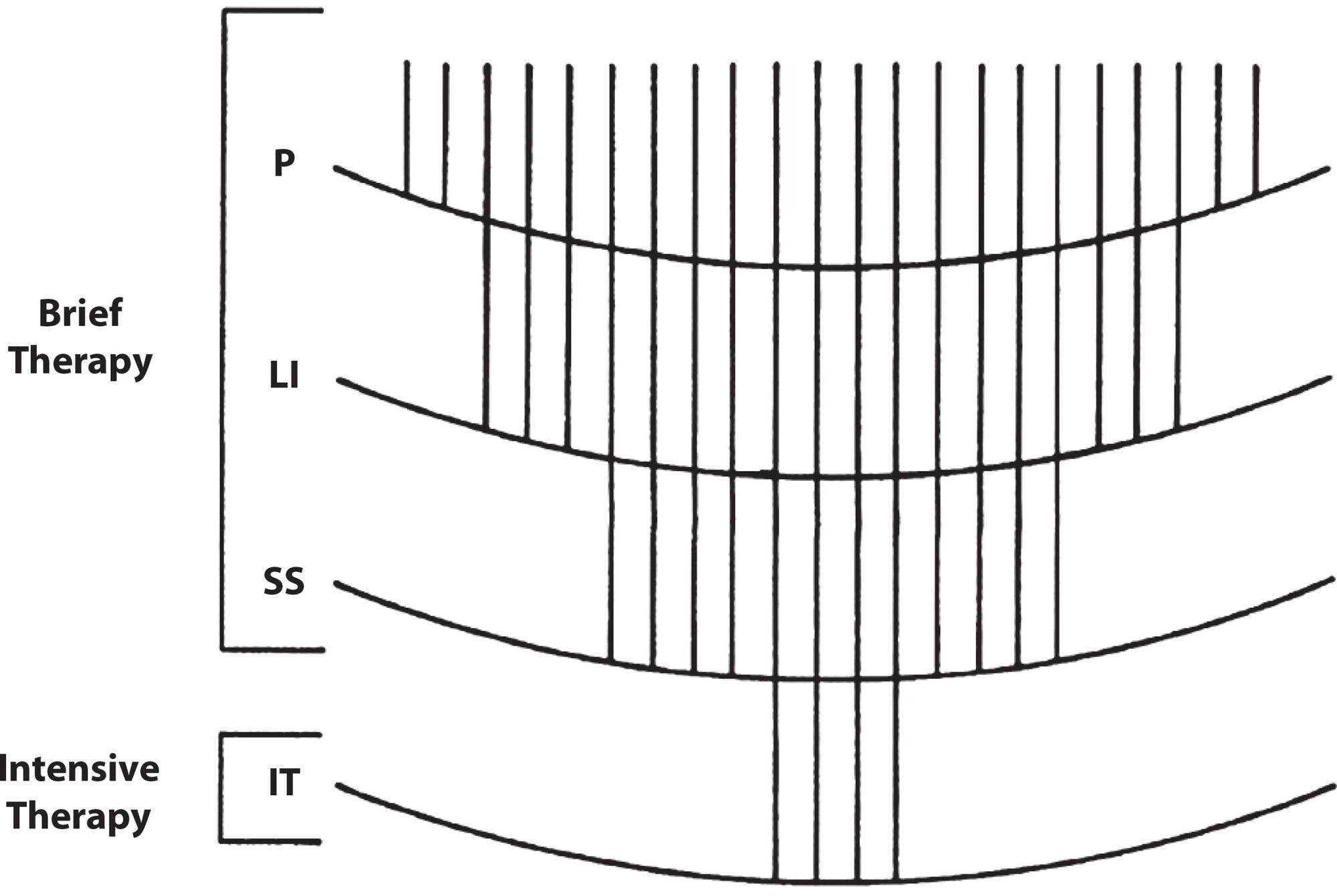-
REVIEW09-29-2022
Palliative care in Primary Health Care: an integrative literature review
Revista Brasileira de Enfermagem. 2022;75(1):e20201335
Abstract
REVIEWPalliative care in Primary Health Care: an integrative literature review
Revista Brasileira de Enfermagem. 2022;75(1):e20201335
DOI 10.1590/0034-7167-2020-1335
Views0See moreABSTRACT
Objectives:
to analyze scientific evidence on the implementation and performance of palliative care in Primary Health Care.
Methods:
an integrative literature review, according to the Preferred Reporting Items for Systematic Reviews and Meta-Analyses, carried out in the PubMed, SciVerse Scopus and LILACS databases, in December 2020, without a time frame.
Results:
22 original scientific articles were analyzed, 14 classified as evidence level VI. The objective was to understand the experiences and roles of professionals, patients and families on palliative care in Primary Health Care, articles focused on the theme of management and organization of health services and on the importance of educational interventions on the subject.
Final Considerations:
evidence found relating palliative care in Primary Health Care points to the possibility of this care; health teams work closely with the family and their home, but the need to expand this theme is still perceived.

-
REVIEW09-29-2022
Children with congenital heart disease in COVID-19 pandemic times: an integrative review
Revista Brasileira de Enfermagem. 2022;75(1):e20201033
Abstract
REVIEWChildren with congenital heart disease in COVID-19 pandemic times: an integrative review
Revista Brasileira de Enfermagem. 2022;75(1):e20201033
DOI 10.1590/0034-7167-2020-1033
Views0See moreABSTRACT
Objective:
to identify the scientific production in health about children with congenital heart disease in COVID-19 pandemic times.
Method:
this is an integrative review, carried out in June 2020 in the information resources Latin American and Caribbean Literature in Health Sciences (LILACS), National Library of Medicine, National Institutes of Health (PubMed), Scientific Electronic Library Online Journal Portal (SciELO) and Brazilian Institute of Information Science and Technology (Oasis Ibict).
Results:
14 studies composed this review. Most studies pointed to tests, interventional procedures and surgery for children with heart disease in pandemic times; others discussed possible complications of COVID-19 among children with congenital heart disease.
Conclusion:
the incipient production of studies and the weak level of evidence denote an important knowledge gap so far, highlighting the need for studies with strong scientific evidence for the formulation of care guidelines aimed at children with heart disease.

-
ORIGINAL ARTICLE09-29-2022
Palliative care production for health professionals in the context of home care
Revista Brasileira de Enfermagem. 2022;75(1):e20210030
Abstract
ORIGINAL ARTICLEPalliative care production for health professionals in the context of home care
Revista Brasileira de Enfermagem. 2022;75(1):e20210030
DOI 10.1590/0034-7167-2021-0030
Views1See moreABSTRACT
Objectives:
to analyze palliative care production developed by health professionals to home care patients.
Methods:
this is an exploratory study, with a qualitative approach, using the transpersonal care theoretical framework. Thirteen interviews were conducted with health professionals and 18 observations were conducted on different cases. Content analysis was performed using MAXQDA©.
Results:
actions performed: maintenance and follow-up measures to people eligible for palliative care, in acts of dialogue and “listening” to caregivers and users, conducting guidelines for the care and self-care process, performing technical procedures, delivery of materials, referrals and medical prescriptions to users.
Final Considerations:
it is perceived the need for advances in the implementation of government policies in Brazil that insert palliative care into the Health Care Network through educational, managerial and care actions that ensure human dignity, thus allowing the development of these and other palliative care interventions.
-
ORIGINAL ARTICLE09-29-2022
Incidence of acute radiodermatitis in women with breast cancer undergoing hypofractionated radiotherapy
Revista Brasileira de Enfermagem. 2022;75(1):e20210118
Abstract
ORIGINAL ARTICLEIncidence of acute radiodermatitis in women with breast cancer undergoing hypofractionated radiotherapy
Revista Brasileira de Enfermagem. 2022;75(1):e20210118
DOI 10.1590/0034-7167-2021-0118
Views0See moreABSTRACT
Objective:
To estimate the incidence and degree of acute radiodermatitis at the end and after the end of treatment in women with breast cancer undergoing hypofractionated radiotherapy.
Methods:
Observational, prospective, and longitudinal study, conducted between March 2019 and January 2020, in a radiotherapy outpatient clinic.
Results:
Thirty-two women participated in the study, among whom, in the last session of hypofractionated radiotherapy, 15 (46.9%) had radiodermatitis, erythema in 13 (40.6%), and wet peeling in 2 (6.3%). In the post-treatment evaluation, 27 (84.4%) had radiodermatitis, erythema in 17 (53.1%), dry peeling in 8 (25%), and wet peeling in 2 (6.3%).
Conclusion:
The general incidence of radiodermatitis after hypofractionated radiotherapy in women with breast cancer was 37.5%, erythema, 12.5%, and dry peeling, 25%. The development of care protocols for the management of radiodermatitis after treatment is of paramount importance.
-
ORIGINAL ARTICLE09-29-2022
Neither angels nor heroes: nurse speeches during the COVID-19 pandemic from a Foucauldian perspective
Revista Brasileira de Enfermagem. 2022;75:e20201329
Abstract
ORIGINAL ARTICLENeither angels nor heroes: nurse speeches during the COVID-19 pandemic from a Foucauldian perspective
Revista Brasileira de Enfermagem. 2022;75:e20201329
DOI 10.1590/0034-7167-2020-1329
Views1See moreABSTRACT
Objective:
to analyze the processes of meaning production, based on the speeches of nursing professionals, about how they feel about the titles of “angels and heroes” given by society during the pandemic of COVID-19.
Methods:
a qualitative, documentary research. Data was collected in October and November 2020 and analyzed from the perspective of the Discourse Analysis proposed by Michel Foucault.
Results:
they were organized into two thematic categories: “Angels and heroes? The (not) heroic reality of nursing during the pandemic” and “The search for recognition of the professional work of nursing: between what is said and what is not said”.
Final considerations:
the nurses’ speeches enunciate the search for decent conditions for the execution of care, fair wages, and recognition of the professional work by society.
-
EXPERIENCE REPORT09-29-2022
Mobile pre-hospital care reorganization during the COVID-19 pandemic: experience report
Revista Brasileira de Enfermagem. 2022;75:e20200826
Abstract
EXPERIENCE REPORTMobile pre-hospital care reorganization during the COVID-19 pandemic: experience report
Revista Brasileira de Enfermagem. 2022;75:e20200826
DOI 10.1590/0034-7167-2020-0826
Views0See moreABSTRACT
Objective:
To describe the reorganization of Belo Horizonte’s Mobile Emergency Care Service during the new coronavirus pandemic using the Plan Do-Check-Act quality tool.
Methods:
Descriptive study, of the experience report type, on the reorganization of care in a mobile pre-hospital care service during the new coronavirus pandemic, from March to July 2020. The Plan-Do-Check-Act quality tool was applied for the process.
Results:
Preparation of care protocol, meetings, training, addition of ambulances, hiring of professionals, and other actions were carried out, with subsequent evaluation and monitoring. When failures or new needs were identified, actions and changes were implemented while keeping monitoring and evaluation during the work routine.
Final considerations:
The reorganization of the service through the construction of a protocol and using the Plan-Do-Check-Act as a management tool was essential to promote safe care for professionals and patients.

-
REFLECTION09-29-2022
Health care of deaf persons during coronavirus pandemics
Revista Brasileira de Enfermagem. 2022;75:e20201036
Abstract
REFLECTIONHealth care of deaf persons during coronavirus pandemics
Revista Brasileira de Enfermagem. 2022;75:e20201036
DOI 10.1590/0034-7167-2020-1036
Views0See moreABSTRACT
Objective:
To reflect about the barriers experienced by the deaf population during the COVID-19 pandemic, the proposals to overcome communication barriers in health care and the role of public policies in effecting the social inclusion of deaf people.
Methods:
Reflection based on studies on health care for deaf people, the COVID-19 pandemic and public accessibility policies.
Results:
The global crisis of COVID-19 has deepened pre-existing inequalities in the world, in addition to highlighting the vulnerability of people with disabilities, including deaf. Government, institutional and social initiatives to mitigate difficulties in communicating to deaf people have been made, but they are still insufficient to guarantee protection for them in this pandemic and full inclusion in health care.
Final considerations:
Social inclusion, supported by law, and the linguistic accessibility of deaf people still need to generate broad and concrete actions so that deaf people can enjoy their rights as citizens.
-
REFLECTION09-29-2022
Hemodialysis in the context of COVID-19: care, nursing protagonism and quality
Revista Brasileira de Enfermagem. 2022;75:e20201077
Abstract
REFLECTIONHemodialysis in the context of COVID-19: care, nursing protagonism and quality
Revista Brasileira de Enfermagem. 2022;75:e20201077
DOI 10.1590/0034-7167-2020-1077
Views0See moreABSTRACT
Objective:
To reflect on the need to reorganize satellite dialysis units to ensure the safety of patients and workers, focusing on minimizing the risk of contamination by SARS-CoV-2.
Methods:
Reflection considering the guidelines of international and Brazilian institutions and scientific articles, with a view to possible adaptations to the Brazilian reality.
Results:
The actions suggested and adapted by Dialysis Units from different countries during the pandemic focus on the quality of care and safety of the patient and workers. There was an opportunity to reflect on these actions using the Donabedian Model for quality of care and highlight the nursing team’s role in this context.
Final considerations:
The focus on quality and safety related to institutionalized processes and the assessment through indicators can contribute to the management of the outpatient dialysis unit in the context of COVID 19.

-
ORIGINAL ARTICLE12-07-2020
Sarcopenia screening in elderly in primary health care: nurse knowledge and practices
Revista Brasileira de Enfermagem. 2020;73:e20200421
Abstract
ORIGINAL ARTICLESarcopenia screening in elderly in primary health care: nurse knowledge and practices
Revista Brasileira de Enfermagem. 2020;73:e20200421
DOI 10.1590/0034-7167-2020-0421
Views0See moreABSTRACT
Objective:
Describe the knowledge and practices of the Primary Health Care nurse on sarcopenia screening in the elderly.
Methods:
Qualitative study conducted with 24 Primary Health Care nurses. The data was collected through semi-structured interviews, recorded and later transcribed. The speeches were grouped in thematic categories, later analyzed, supported by Paulo Freire’s reference.
Results:
The findings showed that the primary care nurses’ knowledge of sarcopenia screening in the elderly was incipient and fragile. This reality is reflected in a gap in practice, although some instruments already require the registration of characteristics indicative of sarcopenia, such as the evaluation of the calf circumference.
Final Considerations:
The need to train nurses to perform sarcopenia screening and to implement a promotional and preventive care plan, which will result in improving the quality of life of the elderly assisted in Primary Care, was highlighted.
-
ORIGINAL ARTICLE02-17-2020
Social network of children with cronic disease: knowledge and practice of nursing
Revista Brasileira de Enfermagem. 2020;73(2):e20180371
Abstract
ORIGINAL ARTICLESocial network of children with cronic disease: knowledge and practice of nursing
Revista Brasileira de Enfermagem. 2020;73(2):e20180371
DOI 10.1590/0034-7167-2018-0371
Views0See moreABSTRACT
Objectives:
To identify the knowledge and practice of primary care nurses about the social network approach for families of children with chronic diseases.
Methods:
Qualitative research, conducted by means of interviews with 23 family health nurses, from one municipality in Paraíba and one in Rio de Janeiro, from June to July of 2017. The data were interpreted using thematic analysis.
Results:
Social network meant institutional support offered by services outside the unit, and socioeconomic problems involved the family context. In practice, nurses find it difficult to provide comprehensive care and establish ties with families. When referring to other professionals, a weakness in the counter-referral to the family health unit is found.
Final considerations:
Some gaps were found regarding the knowledge and practice of nurses regarding the social network approach, which requires professional training to strengthen social relationships and the necessary support for families of children with chronic diseases.
-
ORIGINAL ARTICLE10-21-2019
Inclusion of mental health in primary health care: care strategy in the territory
Revista Brasileira de Enfermagem. 2019;72(6):1677-1682
Abstract
ORIGINAL ARTICLEInclusion of mental health in primary health care: care strategy in the territory
Revista Brasileira de Enfermagem. 2019;72(6):1677-1682
DOI 10.1590/0034-7167-2018-0806
Views0See moreABSTRACT
Objective:
To analyze the strategies, challenges and possibilities of the articulation between mental health and primary health care from the perspective of health managers.
Method:
Exploratory, qualitative research carried out with 28 managers of mental health and primary care. The data were collected through semi-structured interviews between July and November 2013 and submitted to thematic content analysis.
Results:
The inclusion of mental health actions in primary care made it possible, in the view of managers, to increase users’ access to the care they need. This care strategy allows the extension of care practices in the territory, with matrix support as the main tool for the implementation of this care strategy.
Final considerations:
The articulation between primary care and mental health is a powerful device for psychosocial care, but it demands a new conformation of the Psychosocial Care Centers (Caps) and primary care services.
-
06-11-2021
Prevention of facial injuries caused by personal protective equipment during the COVID-19 pandemic
Revista Brasileira de Enfermagem. 2021;74:e20201219
Abstract
Prevention of facial injuries caused by personal protective equipment during the COVID-19 pandemic
Revista Brasileira de Enfermagem. 2021;74:e20201219
DOI 10.1590/0034-7167-2020-1219
Views0See moreABSTRACT
Objective:
Develop and validate a leaflet to guide health professionals in preventive measures related to injuries caused by the use of personal protective equipment during the COVID-19 pandemic.
Methods:
For the construction of the brochure, an integrative review was carried out in the main databases. The evaluation of the leaflet was made by 59 health professionals (nurses, physiotherapists, and doctors), using the Delphi technique.
Results:
In the first evaluation cycle, the items in the brochure were considered by the judges to be “inadequate” to “adequate”; the Content Validity Index was 0.80-1.0. After the adjustments suggested by the judges were implemented, the leaflet was sent back to the second evaluation cycle, in which all items were considered “adequate”, resulting in a Content Validity Index of 1.0.
Conclusion:
The developed brochure has content validity and can assist health professionals in preventing injuries caused by the use of personal protective equipment the developed brochure has content validity and can assist health professionals in preventing injuries caused by the use of personal protective equipment.

-
ORIGINAL ARTICLE07-08-2020
Self-efficacy in elderly with type 2 Diabetes Mellitus
Revista Brasileira de Enfermagem. 2020;73:e20180980
Abstract
ORIGINAL ARTICLESelf-efficacy in elderly with type 2 Diabetes Mellitus
Revista Brasileira de Enfermagem. 2020;73:e20180980
DOI 10.1590/0034-7167-2018-0980
Views0See moreABSTRACT
Objective:
to analyze the self-efficacy of elderly with type 2 diabetes mellitus and the relationship with sociodemographic, clinical, knowledge, and attitude variables.
Method:
a cross-sectional quantitative study conducted with 256 elderly people enrolled in Family Health Strategies. Data were obtained through interviews. Descriptive statistical analysis and multiple linear regression model were performed (p <0.05).
Results:
female, 69.95-year mean age, white skin color, 4-7 years of schooling, living with a partner, retirees, low individual monthly income, 6 to 15 years of illness, Catholics, living with children (with or without spouse). The elderly’s low knowledge and negative attitude prevailed. Self-efficacy was associated with attitude and knowledge in the domains “General and Specific Diet”, “Physical Exercise” and “Blood Glucose”.
Conclusion:
self-efficacy investigations in type 2 Diabetes Mellitus management in the elderly are important and encourage treatment adherence.
-
ORIGINAL ARTICLE09-16-2019
Knowledge of nursing student on the prevention of sexually transmitted infections
Revista Brasileira de Enfermagem. 2019;72(5):1145-1152
Abstract
ORIGINAL ARTICLEKnowledge of nursing student on the prevention of sexually transmitted infections
Revista Brasileira de Enfermagem. 2019;72(5):1145-1152
DOI 10.1590/0034-7167-2017-0801
Views0See moreABSTRACT
Objective:
To identify the knowledge and self-care actions taken by nursing undergraduate students of a Federal University of the South of Brazil, against Sexually Transmitted Infections.
Method:
Exploratory qualitative study, conducted 40 interviews with undergraduate students at the beginning and end of the course. The analysis was thematic, resulting in three categories.
Results:
Knowledge about the subject is a decisive factor for self-care, and the more knowledge, the greater the prevention. The dissemination of knowledge of students at the end of the course not only influences self-care but also health promotion in the social sphere.
Final considerations:
Knowledge is important in self-care and caring for others. The dissemination of knowledge becomes evident according to the complexity of the course. Stable relationships may interfere with the use or disuse of condoms in sexual relationships, a misnomer present in today’s society.
-
REFLECTION09-29-2022
Health care of deaf persons during coronavirus pandemics
Revista Brasileira de Enfermagem. 2022;75:e20201036
Abstract
REFLECTIONHealth care of deaf persons during coronavirus pandemics
Revista Brasileira de Enfermagem. 2022;75:e20201036
DOI 10.1590/0034-7167-2020-1036
Views0See moreABSTRACT
Objective:
To reflect about the barriers experienced by the deaf population during the COVID-19 pandemic, the proposals to overcome communication barriers in health care and the role of public policies in effecting the social inclusion of deaf people.
Methods:
Reflection based on studies on health care for deaf people, the COVID-19 pandemic and public accessibility policies.
Results:
The global crisis of COVID-19 has deepened pre-existing inequalities in the world, in addition to highlighting the vulnerability of people with disabilities, including deaf. Government, institutional and social initiatives to mitigate difficulties in communicating to deaf people have been made, but they are still insufficient to guarantee protection for them in this pandemic and full inclusion in health care.
Final considerations:
Social inclusion, supported by law, and the linguistic accessibility of deaf people still need to generate broad and concrete actions so that deaf people can enjoy their rights as citizens.
-
EXPERIENCE REPORT08-19-2019
PLISSIT model: sexual counseling for breast cancer survivors
Revista Brasileira de Enfermagem. 2019;72(4):1109-1113
Abstract
EXPERIENCE REPORTPLISSIT model: sexual counseling for breast cancer survivors
Revista Brasileira de Enfermagem. 2019;72(4):1109-1113
DOI 10.1590/0034-7167-2018-0525
Views0See moreABSTRACT
Objective:
Reporting the experience of use of the PLISSIT model as tool for the nursing care of breast cancer survivors with sexual dysfunction.
Method:
case study developed from January to August 2017, in the outpatient mastology clinic and sexuality service of a maternity in Fortaleza, Ceará, Brazil, with 15 breast cancer survivors.
Results:
sexual counseling sessions were conducted using the PLISSIT model to address sexual issues, highlighting the particularities of women who experience survival after the treatment of breast cancer.
Final considerations:
the model used in the practice of nursing care is customary and allows identifying issues experienced by women, as it has easy availability and practicality for use by nursing professionals, helping to address sexual matters with greater tranquility.

Search
Search in:
Nuvem de Tags
Adolescente (85) Atenção Primária à Saúde (239) COVID-19 (91) Criança (91) Cuidados de Enfermagem (269) Educação em Enfermagem (151) Educação em Saúde (139) Enfermagem (930) Enfermagem Pediátrica (86) Estudantes de Enfermagem (77) Estudos de Validação (131) Família (87) Idoso (208) Promoção da Saúde (99) Qualidade de Vida (104) Saúde do Trabalhador (86) Saúde Mental (145) Saúde Pública (82) Segurança do Paciente (150) Tecnologia Educacional (100)



